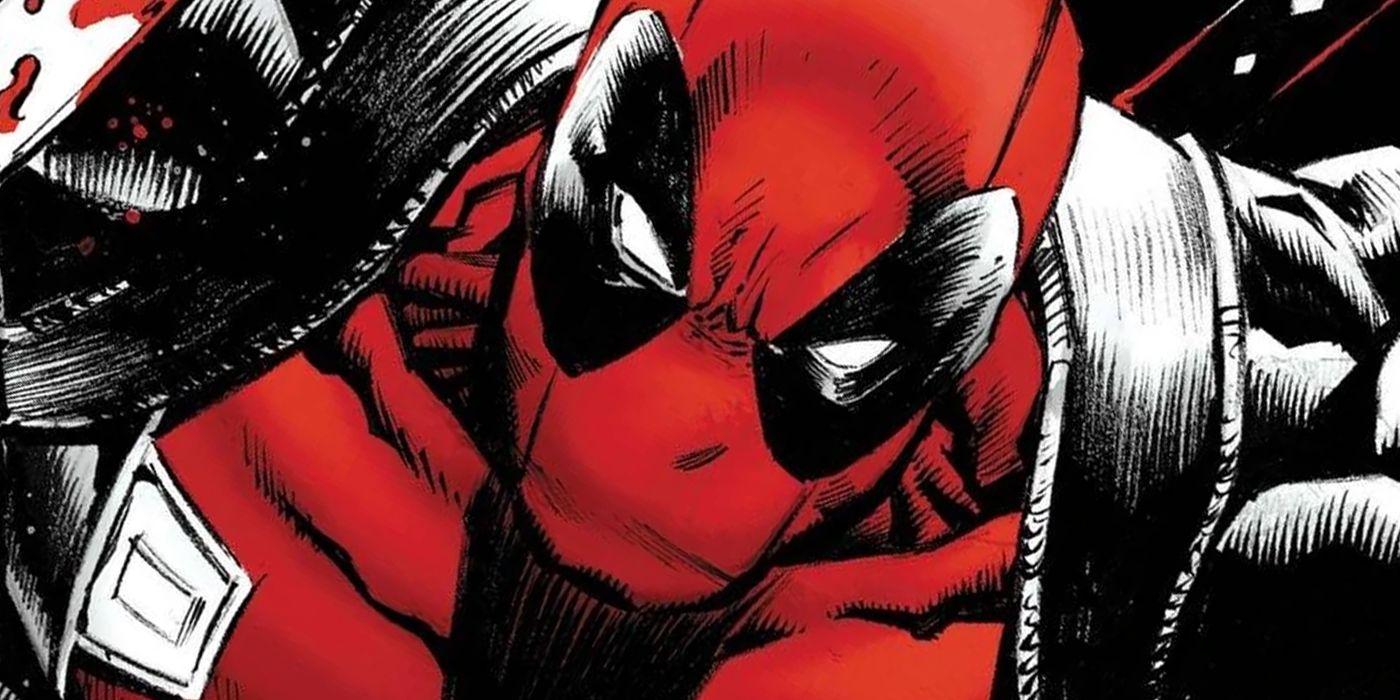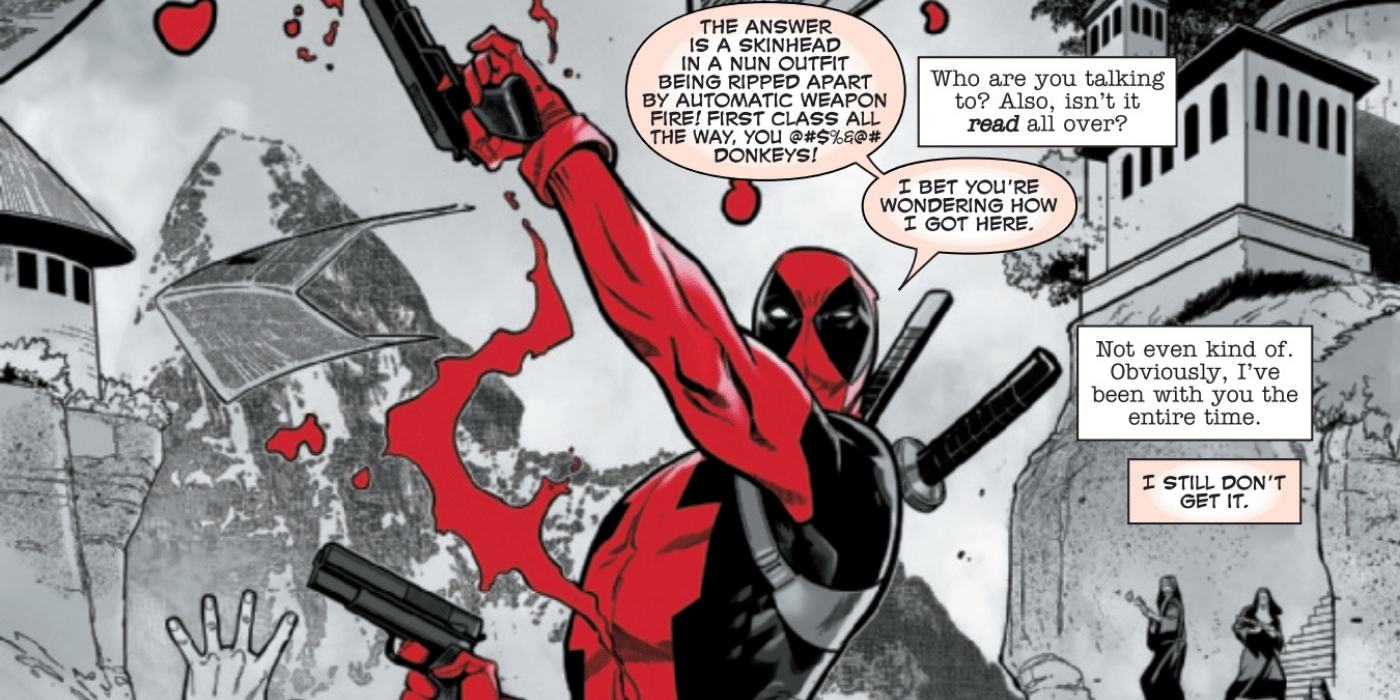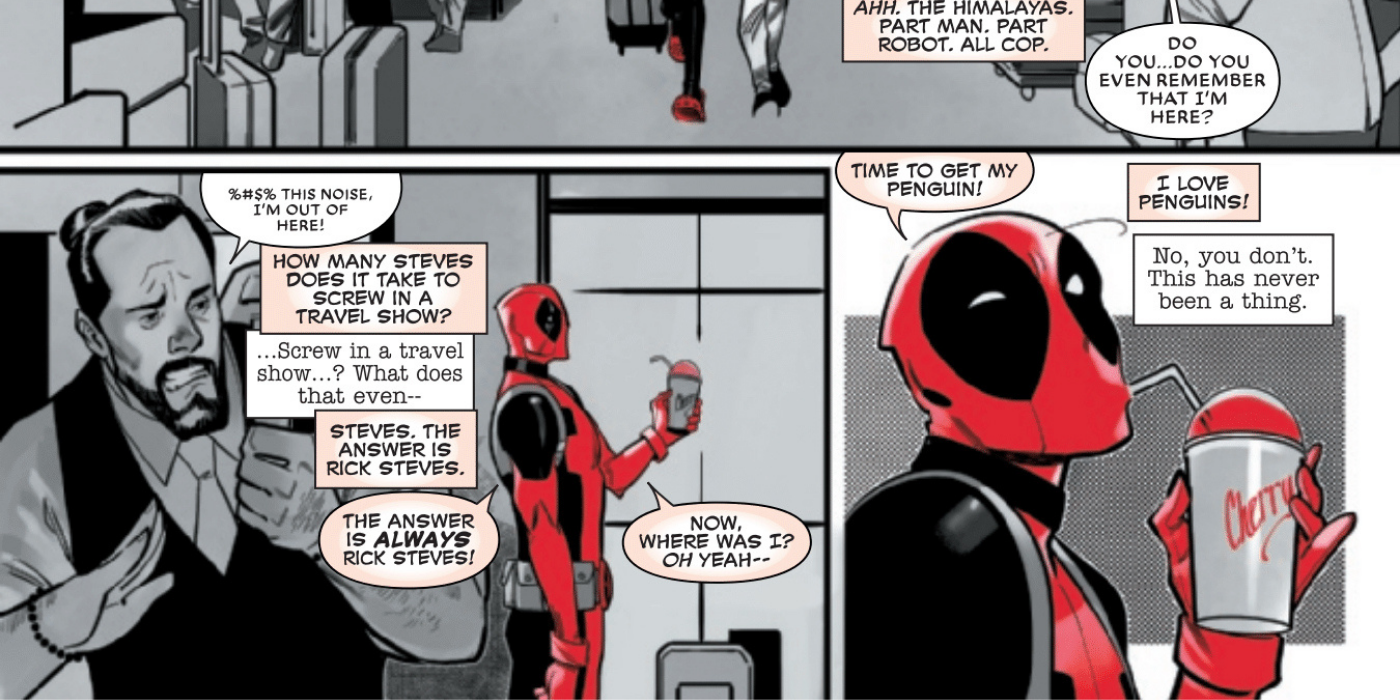WARNING: The following contains spoilers for Deadpool: Black, White and Blood #3, on sale now from Marvel Comics.
Deadpool has always been known for his talkative nature, but at one point it became too much for even him to handle. For a long time, one of Deadpool's unofficial "superpowers" was the presence of two distinct voices in his head whose fourth-wall-breaking jokes and observations seemed to be completely independent of those of the man whose head they filled; one of these inner-voices was manic and unhinged while the other was calmer and more dead-pan.
These twin voices were a defining element of Deadpool's character for many years, and their unceremonious removal from Wade's mind in Deadpool Annual #1 (by Ben Acker, Ben Blacker, Evan Shaner, Veronica Gandini, and Joe Sabino) was a major turning point in Wade's transformation from a morally-ambiguous anti-hero into a well-meaning but misguided hero. That makes the voices reappearing in Deadpool: Black, White and Blood #3's "The Worst Convent in the World" (by Jay Baruchel, Paco Medina, Federico Blee, and Sabino) all the more surprising, and their prominence in the story could foreshadow their return in other Deadpool storylines.
The inner voices of Deadpool were a fundamental part of Wade's identity in his earliest appearances, not only serving as the source of much of the Merc with the Mouth's iconic fourth-wall-breaking humor but also as extensions of Wade's mental instability. The voices would often argue with each other and Deadpool over how they should handle a certain situation or would interject when he was trying to make a decision. This dynamic is on full display in "The Worst Convent in the World", where Deadpool tracks down a pet penguin he ordered from an online service, which ultimately leads him to a "penguin convent" of neo-nazis pretending to be nuns. Throughout the journey, the two voices actively contradict Deadpool's thoughts, insult him, and encourage him to embrace his murderous tendencies. The voices' influence over Deadpool is very strong, as he almost always gives in to their suggestions and accepts their abuse without complaint.
While these voices were initially implied to be another manifestation of Deadpool's mental illness, Deadpool Annual #1 revealed that they were the result of Wade's unintentional fusion with one of Captain America's lesser-known villains, Madcap. Madcap was a pious young man whose view of a rational universe was shattered when a truck carrying experimental chemicals crashed into the bus carrying him, his family, and the congregation of their church, killing everyone except Madcap, who was instead given regenerative powers and the ability to drive others insane. Madcap used his newfound abilities to lash out at the world around him, leading to various encounters with heroes like She-Hulk. Eventually, Madcap encountered Deadpool on a rooftop and a stray bolt of lightning from Thor's hammer reduced the two to dust. When Deadpool regenerated, he unintentionally absorbed Madcap.
Madcap manifested as the more serious of the two voices within Deadpool's mind and would remain there until another stray lightning bolt separated the two. While Madcap was driven even crazier by his time in Deadpool's mind, Deadpool's sanity improved after their separation. Now that he was free to think for himself, Deadpool became less impulsive and more aware of his environment and the way his actions affected others, leading to him becoming more empathetic. When exactly "The Worst Convent in the World" is set in continuity is unclear, but there is a stark difference between the unhinged demeanor that Deadpool displays here and the tenderness he shows in his more recent interactions with characters like Gabby Kinney, highlighting just how much these voices affect him.
The voices' return might be a one-off development, but there is a chance that they might become a part of Deadpool's life again. While it's unlikely that the voices will make a comeback in comics, this element of Wade's character may be carried over into his upcoming debut in the Marvel Cinematic Universe. If they do, Deadpool's conversations with himself could give the MCU's interpretation of the character the same quirky and unique sense of humor that made his initial debut in comics so memorable.



